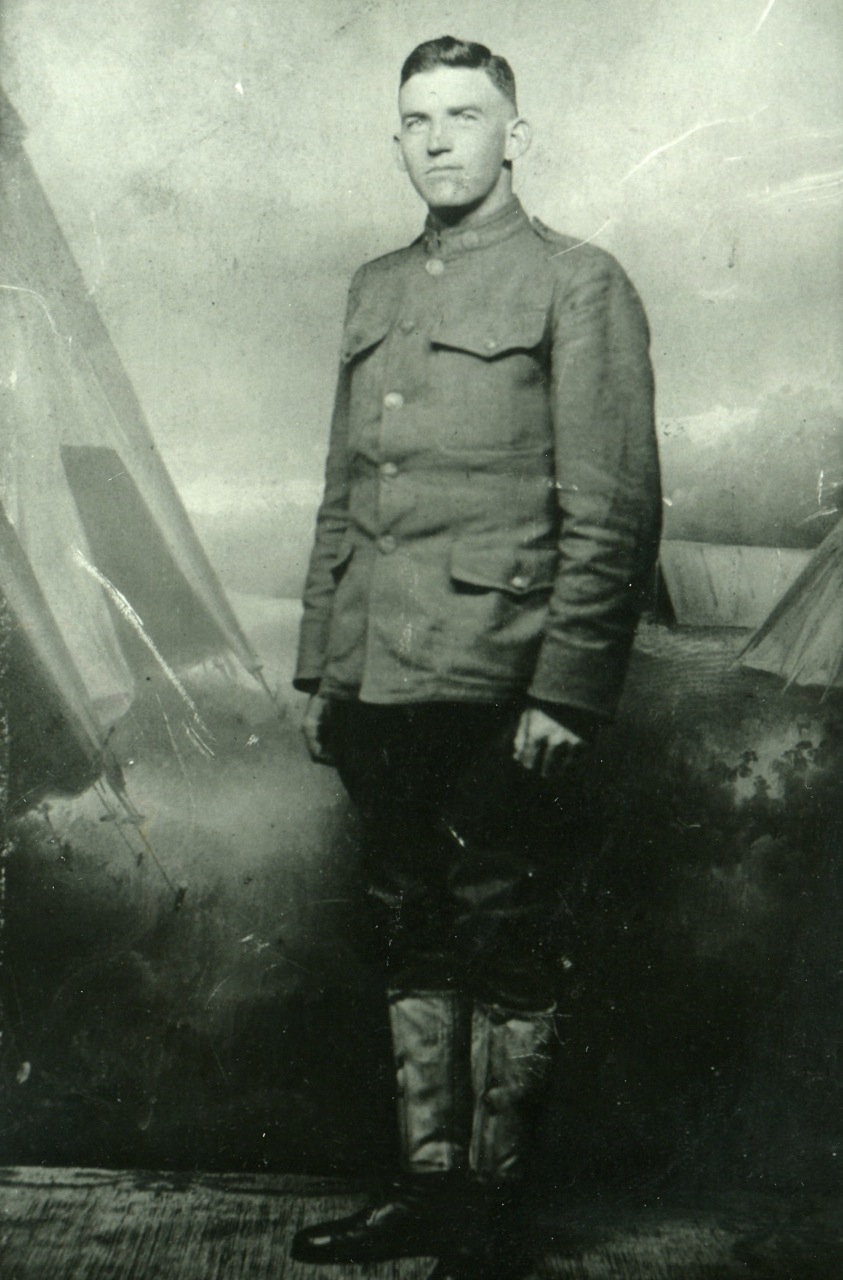|
World War I "Until
the millennium arrives and countries cease trying to enslave others, it will be necessary
to accept one's responsibilities and to be willing to make sacrifices for one's country -
as my comrades did. As the troops used to say, "If the country is good enough to live
in, it's good enough to fight for." With privilege goes responsibility". When I teach this class face-to-face, I take students on a field trip when we get to World War I. From campus we walk thirty minutes east to the shore of Lake Michigan and visit Milwaukee's War Memorial. There is a reflecting pool and around it are inscribed the names of local men and women who gave their lives in our World Wars. Not far away rises the Vietnam Veteran's Memorial comprised of three red granite columns. We use crayons and large sheets of paper to trace the names from around the pool. We hang the tracings in our classroom as a reminder for the rest of the term. Students hate the long walk, but in the end they understand why it is important to pay respect to those who fought so that we may be free. Learn this from me my friends: Freedom is not free.
Imagine you are driving down a highway with people standing shoulder-to-shoulder on both sides. Do you know that you would have to drive for two hours - at 60 miles per hour - before you would pass every American who has sacrificed their life for this great nation? Think about it again: Freedom is not free. Do you think I am being silly and overly sentimental? Then go to the next Veteran's or Memorial Day parade and see how few of your fellow citizens show up to honor our fighting men and women. It's simply disgraceful. If you live with, or are related to, someone who spent time in our armed forces, please do me a favor; Tell them your teacher said, "thanks". Enough said. So about these "World Wars". Well there have been two and each began in Europe before the United States got involved. During both the Russians (Soviet Union) were our allies. Students find this strange since they grew up thinking about the "evil empire" as described by Ronald Reagan. The fact is, that for the first 50 years of the current century, we were on the same side. World War II is a war we fought in two places: Europe and the Pacific (Japan). But I'm getting ahead of myself. Here's the reading for this assignment Below you will find five groups of words. For each group you will write a single sentence describing events of the war using each of the terms. When you have completed the five sentences, you must arrange them in chronological order, i.e. what came first, second, etc.
1. Selective Service Act, 4 million, 2 million, Draftee 2. Woodrow Wilson, 128, Neutrality, Lusitania, Submarine warfare 3. Archduke Francis Ferdinand, Germany, Alliances, 1914, Austria-Hungary 4. Fourteen Points, Treaty of Versailles, League of Nations 5. Chateau-Thierray, 1918, 275,000 6. How were African American soldiers treated differently? 7. How did the home front build a war machine? 8. List the Allied and Central Powers Take a look at this World War I table and answer the following: 9. Which Allied nation suffered the most casualties (deaths)? 10. How many lives did the Great War claim? 11. What nation lost the largest percentage of it's troops? As you can see the war was much more devastating for the nations of Europe than it was for the United States. Read this account of the Battle of the Somme. Keep in mind that this is just ONE battle! 12. How many British soldiers died in a single day? How many would die in all? World War I is known for "trench warfare" where the armies would dig and live in trenches. They would make occasional charges at the enemy hoping not to be machine gunned to death in the area known as "no man's land" between the trenches. Getting hung up on barbed wire increased the chances you'd be killed. Literally thousands of men might die just trying to gain a few feet of ground or take over the other side's trench. You can visit parts of Europe today and walk the battle grounds where the trenches are still visible in the uneven, rolling landscape. If you'd like, you can visit by clicking around this WWI site. Then again, come Memorial or Veteran's day, maybe you'll go to a parade and salute those who deserve your thanks and respect. Who knows maybe you'll even head on down to the War Memorial and thanks those who couldn't make the parade. |


